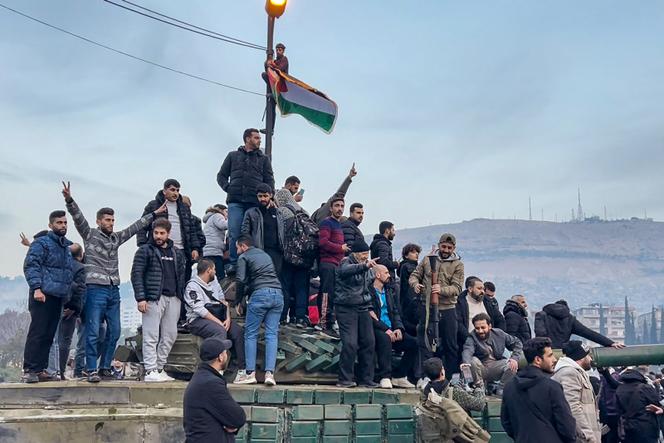


French President Emmanuel Macron on Sunday, December 8, welcomed the fall of Bashar al-Assad's "barbaric state" in Syria, and sent wishes of peace to the war-torn nation's people.
"The barbaric state has fallen. At last," Macron wrote on X. "I pay tribute to the Syrian people, to their courage, to their patience. In this moment of uncertainty, I send them my wishes for peace, freedom, and unity."
The EU's top diplomat also hailed Assad's fall and said it pointed to the weakness of some of his supporters, including Russia. "The end of Assad's dictatorship is a positive and long-awaited development. It also shows the weakness of Assad's backers, Russia and Iran," Kaja Kallas said in a post on X.
She added that the EU's priority was to "ensure security" in the region and pledged to work with "all the constructive partners" in Syria and more broadly across the area. "The process of rebuilding Syria will be long and complicated and all parties must be ready to engage constructively," she said.
The comments came as Islamist-led rebels declared Assad had fled the country following a lightning offensive that wrested city after city from his control, culminating with their arrival in Damascus on Sunday.
President Joe Biden said Sunday that the sudden collapse of the Syrian government is a "fundamental act of justice" after decades of repression but it was "a moment of risk and uncertainty" for the Middle East.
The Democrat credited action by the US and its allies for weakening Syria's backers − Russia, Iran and Hezbollah. He said "for the first time" that they could no longer defend Assad's grip on power. "Our approach has shifted the balance of power in the Middle East," Biden said, after a meeting with his national security team.
He added that the deposed Syrian leader should be "held accountable" but called the nation's political upheaval a "historic opportunity" for Syrians to rebuild their country. "We will engage with all Syrian groups, including within the process led by the United Nations, to establish a transition away from the Assad regime toward independent, sovereign" Syria "with a new constitution," he said.
Biden also warned that Washington will "remain vigilant" against the emergence of terrorist groups, announcing that US forces had just conducted fresh strikes against militants from the Islamic State organization. The US President said that Washington is "clear-eyed" that ISIS, "will try to take advantage of any vacuum to reestablish" itself in Syria. "We will not let that happen," he added.
He also cautioned that hardline Islamist groups within the victorious rebel alliance will be under scrutiny. "Some of the rebel groups that took down Assad have their own grim record of terrorism and human right abuses," Biden said. The United States had "taken note" of recent statements by rebels suggesting they had since moderated, he said, but cautioned: "We will assess not just their words, but their actions."
Meanwhile, President-elect Trump said Sunday that Assad had fled because close ally Vladimir Putin, the Russian president, "was not interested in protecting him any longer."
Those comments on Trump's social media platform came a day after he used another post to decry the possibility of the US intervening militarily in Syria to aid the rebels, declaring, "THIS IS NOT OUR FIGHT." The Biden administration said it had no intention of intervening.
The UN's special envoy for Syria, Geir Pedersen, called Saturday for urgent talks in Geneva to ensure an "orderly political transition."
The Gulf nation of Qatar, a key regional mediator, hosted an emergency meeting of foreign ministers and top officials from eight countries with interests in Syria late Saturday. The participants included Iran, Saudi Arabia, Russia and Turkey. Majed al-Ansari, Qatar's Foreign Ministry spokesman, told reporters that they agreed on the need "to engage all parties on the ground," including the HTS, and that the main concern is "stability and safe transition."
Israeli Prime Minister Benjamin Netanyahu said the overthrow of Assad was a "historic day in the... Middle East" and the fall of a "central link in Iran's axis of evil".
"This is a direct result of the blows we have inflicted on Iran and Hezbollah, Assad's main supporters. It has triggered a chain reaction across the Middle East, empowering those seeking to break free from this oppressive regime," he added on a visit to the Israeli-occupied Golan Heights.
Netanyahu said the 1974 agreement separating Israeli and Syrian forces in the Golan Heights had "collapsed," with Syrian soldiers abandoning their positions, and that Israel had seized the buffer zone for its own protection.
